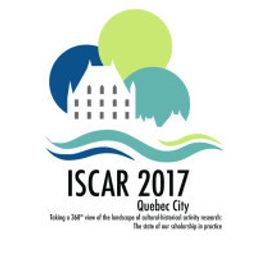A comparative case study on the development of learner identities in Waldorf, Montessori and traditional education in the Netherlands
Quoi:
Poster presentation on PhD Day
Partie de:
Quand:
12:30 PM, Lundi 28 Août 2017
(1 heure)
Comment:
Students, once they come to be understood by themselves and their teachers as low achieving or bad behaving, often find limited opportunities to reposition themselves as better learners. When these understandings of students as learners are inflexible, this may cause education to be less inclusive: students could be given up on not only by their teachers (see e.g. Wortham 2006), but also by themselves (Vianna & Stetsenko 2011). Persistent positionings of students as bad learners may thus result in excluding, yet durable and internalized learner identities: (often ability-related) self-understandings as learners that cause students to disengage from their education. In this paper, departing from social practice theory (Coll & Falsafi 2010; Vianna & Stetsenko 2011), an ethnographic multiple case study is presented that aims to examine, how school and classroom processes play a role in the development of secondary school students’ learner identities. We add to existing research in two ways: Unlike many existing studies in the field (see e.g. Wortham 2006), we combine the analysis of classroom observations and student interview data. Furthermore, whereas previous research on this topic generally concerns single classroom case studies (Ibidem), we compare pre-vocational and pre-university classrooms (N=6) from three different schools. Six students per classroom are interviewed for individual case studies. In employing this research design, we expect to expand insights on the interplay between formal educational processes and mechanisms on the one hand, and the negotiation and development of students’ learner identities on the other. Finally, we hope to discuss with fellow ISCAR 2017 session members how this interplay might be quantitatively assessed in the future.
Literature:
Coll, C. & Falsafi, L. (2010) ‘Learner identity. An educational and analytical tool’. Revista de Educación, 353, 211-233.
Vianna, E. & Stetsenko, A. (2011) ‘Connecting Learning and Identity Development through a Transformative Activist Stance: Application in Adolescent Development in a Child Welfare Program’. Human Development, 54, 313-338.
Wortham, S. (2006). Learning identity: the joined local emergence of social identification and academic learning. Cambridge: Cambridge University Press.
Literature:
Coll, C. & Falsafi, L. (2010) ‘Learner identity. An educational and analytical tool’. Revista de Educación, 353, 211-233.
Vianna, E. & Stetsenko, A. (2011) ‘Connecting Learning and Identity Development through a Transformative Activist Stance: Application in Adolescent Development in a Child Welfare Program’. Human Development, 54, 313-338.
Wortham, S. (2006). Learning identity: the joined local emergence of social identification and academic learning. Cambridge: Cambridge University Press.
